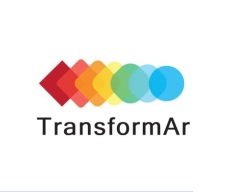Dr. Athanasios Sfetsos, received a B.Sc. in Physics from University of Patras in 1995 and a Ph.D. in Electrical Engineering from Imperial College, University of London (1999). Presently a Research Director at the Institute of Nuclear and Radiological Sciences, Technology Energy and Safety at NCSR Demokritos in the domain of “Climate Change and Critical Infrastructure Protection” (elected 2021). He was a part time Associate at the University of Western Macedonia between 2004 – 2010 in the field of environmental management. Supervisor of 3 PhD candidate, 3 MSc Thesis and 9 final year projects from various Greek Academic Institutions.
My research interests fall to the thematic priorities of (i) Climate change resilience of infrastructures, (ii) Critical Infrastructure Protection (risk analysis, design of physical protection, vulnerability assessment), (iii) Disaster Management with emphasis on climate hazards and extreme events; and (iii) Climate Change analysis and provision of climate services.
Member of the editorial board of Renewable Energy (IF = 4.900) and also reviewer of 18 more journals in the field. Participation in European Reference Network for Critical Infractrutsure Protection – (ERNCIP), Community of Users in Security Research, Industry Mission Group for Security and also represents NCSRD in the National Platform for the Sendai Framework.
Co-authored more than 230 papers in refereed journals and conference proceedings, including 13 book chapters, and an h-index =16 in SCOPUS. He has participated in more than 25 EU and nationally funded projects and was the coordinator of the H2020 project: A panEuropean framework for strengthening Critical Infrastructure resilience to climate change (653824 — EU-CIRCLE) and NCSRD Coordinator for the ERANET for Climate Services (ERA4CS).
Extended expertise in Disaster Risk Domain (EREL4CCA-DRR)

NEVERMORE will develop an integrated common assessment framework consistent across scales for modelling, simulating and evaluating impacts and risks of climate change, as well as policy measures. The approach integrates information from physical modelling of impacts and risk analysis methodologies a...

The TranformAr project aims to develop and demonstrate products and services to launch and accelerate large-scale and disruptive adaptive process for transformational adaptation in vulnerable regions and communities across Europe. The 6 TransformAr lighthouse demonstrators face a common challenge: w...

The LIFE RESYSTAL project’s main objective is to increase climate adaptation capacities and resilience of the European Health Infrastructure (EHI) and systems and related dependant critical infrastructures. To achieve this, the project will a) set the basis of a European Network for the climate adap...

The XENIOS project aims to develop services for the short-, medium-, and long-term forecast of extreme natural phenomena and natural disasters in sites of tourist and cultural interest, which are also vulnerable to natural hazards. The ultimate objective is to contribute towards a more effective man...

EU-CIRCLE’s scope is to derive an innovative framework for supporting the interconnected European Infrastructure’s resilience to climate pressures, supported by an end-to-end modelling environment where new analyses can be added anywhere along the analysis workflow and multiple scientific discipline...
